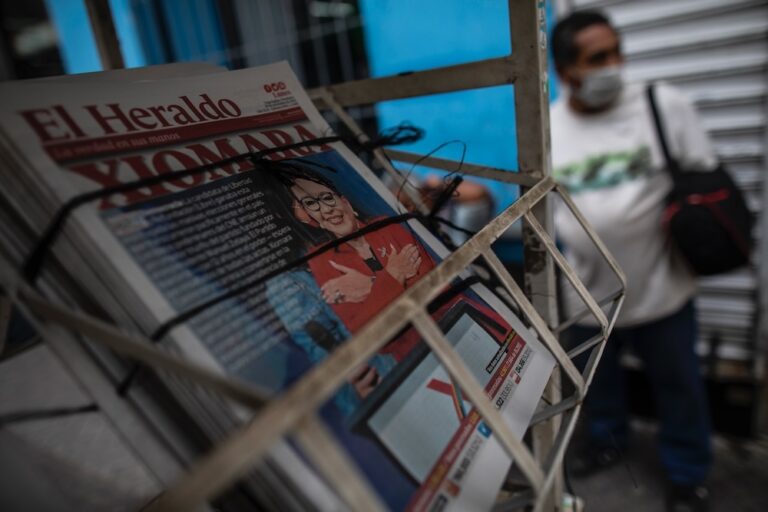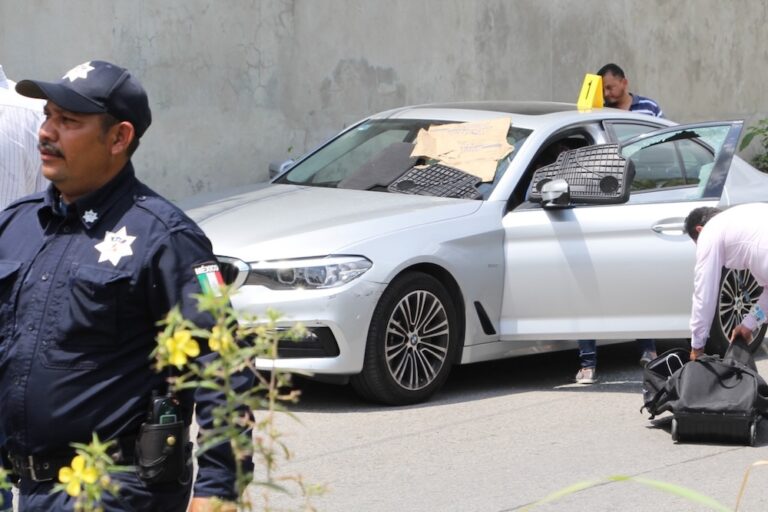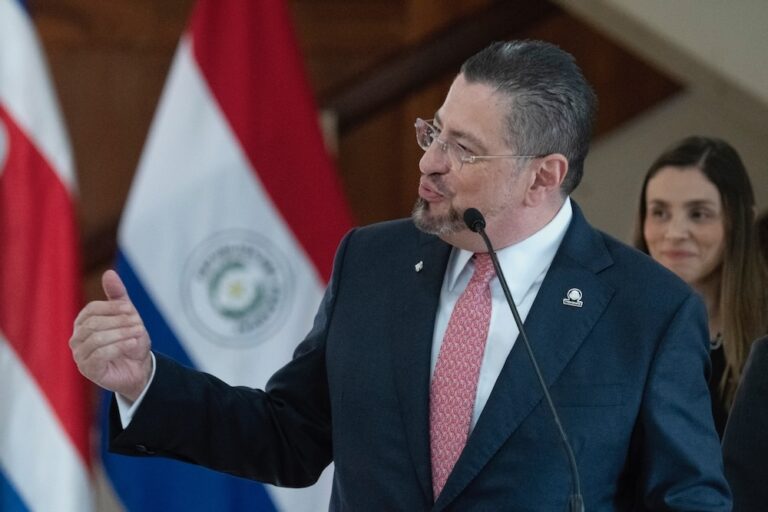The organisation has called for coordinated action by governments to end violence against the press.
(IAPA/IFEX) – WASHINGTON, DC, July 16, 2010 – The Inter American Press Association (IAPA) said today that violence against journalists is one of the greatest challenges that governments and inter-governmental agencies must take on if they want to ensure democracy in the Americas.
During a recess of IAPA’s Executive Committee meeting, the hemisphere organization’s leaders called on “every government and supra-governmental agency in the region to come up with effective, innovative and coordinated measures to combat the unpunished violence against the press.”
“We ask that all multilateral groups – the Organization of American States (OAS), the Union of South American Nations (UNASUR), the Bolivarian Alliance for the Americas (ALBA), the Latin American Integration Association (ALADI), the Inter-American Development Bank (IDB) and the Andean Development Corporation (CAF) – include in their agendas the serious problem of violence and other subtle methods that limit press freedom; if they don’t, we will be allowing our democracies to weaken further and impacting directly the people’s right to receive information,” said IAPA President Alejandro Aguirre, editor of the Miami, Florida, Spanish-language daily Diario Las Américas. “Our experience tells us that this is already a problem that one government alone cannot resolve,” he added.
Aguirre was stating the IAPA’s grave concern over the wave of violence unleashed along the Mexico-United States border where nine journalists have been killed so far this year, another seven murders in Honduras and one in Colombia – all by organized crime groups and all this year.
Besides these 17 murders, the IAPA has documented during the same period the abduction of 11 news men and women in Mexico – eight whose whereabouts remain unknown – and one in Brazil, since freed. Two journalists – one each in Brazil and Guatemala – have suffered armed assaults and there have been five serious attacks on media offices in Mexico and one in Venezuela.
Aguirre pointed out that several governments in the region have taken “positive steps,” but that experience “shows that efforts must be redoubled.” In Mexico, he stated, the greatest need is for a constitutional amendment making crimes against journalists federal offenses and strengthening penalties. At the same time he praised that country’s creation of a Special Prosecutor’s Office for Dealing with Crimes Committed against Freedom of Expression.
Aguirre also welcomed the progress made in Brazil, Colombia and Peru in the area of legal and judicial actions against impunity, noting that in the past six months the murderer of journalist Orel Sambrano was convicted in Venezuela and in Brazil four people were convicted for the murder of Luis Carlos Barbon Filho.
IAPA 1st Vice President Gonzalo Marroquín recalled that the IAPA has taken its concern at the state of individual and collective freedoms in such countries as Cuba and Venezuela to international agencies, including the Organization of American States (OAS).
In this regard, Marroquín, editor of the Guatemala City, Guatemala, newspaper Prensa Libre, cited the release of nine Cuban independent journalists who this week were exiled to Spain, thanks to an agreement between the governments of the two countries and the Roman Catholic Church, while expressing the IAPA view that international bodies and regional governments should pressure the Castro regime so that “freedom is practiced domestically and not beyond its borders”, that the persecution of journalists and bloggers ends and that greater access by the people to the Internet be allowed, as well as freedom of assembly. “All political prisoners must be released, among them the remaining 15 journalists who are still behind bars,” he declared.
Marroquín also reported that at a meeting held yesterday with officials of the Inter-American Commission on Human Rights (IACHR) the IAPA voiced support for Venezuelan journalist Guillermo Zuloaga, president of the Globovisión TV network, who last Friday was at IACHR headquarters to formally register a complaint about the harassment and persecution he is subjected to by the government of President Hugo Chávez.
Detailing judicial harassment, the IAPA said that since July 31, 2009 there has been “an incomprehensible” court ruling in effect barring the São Paulo, Brazil, newspaper O Estado de S. Paulo from publishing information about a Federal Police investigation into the alleged participation of businessman Fernando Sarney in acts of corruption. It also denounced the sentencing in Venezuela of Francisco Pérez, a columnist with the El Carabobeño, to three years and nine months in prison for “offending a public official and libeling a person engaged in public service.” The ruling also disqualified Pérez as a journalist and politician – “a typical strategy” in Venezuela that Marroquín said makes the regime resistant as September elections approach.
Milton Coleman, of The Washington Post and IAPA 2nd Vice President, discussed the more subtle, but just as direct, tactics threatening press freedom that the organization describes as “a systematic campaign of attacks and discredit generated by governments whose primary targets are journalists and the news media.”
The IAPA officers voiced concern at recent paid political propaganda campaigns denounced by several national press freedom organizations, including groups from Argentina, Ecuador and Guatemala. Presidents Cristina de Kirchner, Rafael Correa and Alvaro Colom, respectively, have launched ad campaigns accusing independent media and journalists who criticize them of seeking to destabilize the government or the democratic system.
(. . .)


